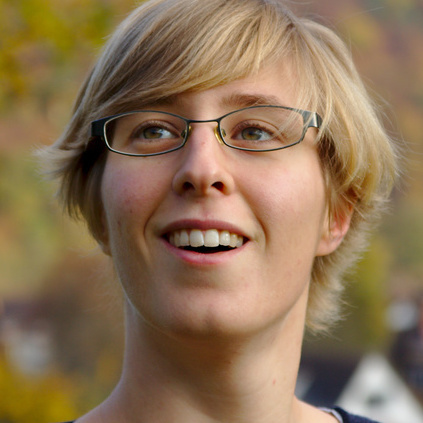Note: Alexandra Gessner has transitioned from the institute (alumni).
I am a PhD student in the Probabilistic Numerics group supervised by Philipp Hennig. In the course of my PhD, I envisage to advance adaptive Bayesian quadrature methods for integration tasks that appear in probabilistic models.
News:
- 06-09/18 I'm interning at Amazon Research Cambridge
- 04/18 I gave a talk at the Probabilistic Numerics minisymposium at SIAM UQ in Garden Grove, CA
- 10/17 The IMPRS-IS bootcamp was great fun and very instructive!
- 09/17 I attended the Gaussian Process Summer School in Sheffield, UK
- 07/17 I joined the International Max Planck Research School for Intelligent Systems (IMPRS-IS)!
- 06/17 I attended the Probabilistic Numerics Summer School in Dobbiaco
- 05/17 I gave a talk at the Gaussian Process Approximations Workshop in Berlin
My research:
The main idea behind Bayesian quadrature (BQ) is to treat the integration task as an inference problem, i.e. to construct posterior measures over integrals $F = \int f(x)\,dx$. The choice of the model allows to encode prior knowledge about the integrand (e.g. smoothness).
In probabilistic models, one often is confronted with high dimensional integrals of positive functions that are concentrated in space. State-of-the-art numerical integration based on Markov-chain Monte Carlo (MCMC) may suffer from sample inefficiency and poor convergence diagnostics. In contrast, a BQ method with a suitably devised prior measure adapts to the shape of the integrand and efficiently selects informative nodes. However, BQ comes at a much higher computational cost than MCMC. My goal is to combine the strengths of MCMC integration and BQ to proceed on the path towards solving the long-standing problem of high-dimensional integration.
About me:
My educational background is in physics, which I studied at LMU in Munich and McGill University in Montreal. I pursued my Master's project on core-collapse supernovae simulation at the Max Planck Institute for Astrophysics in Garching.

